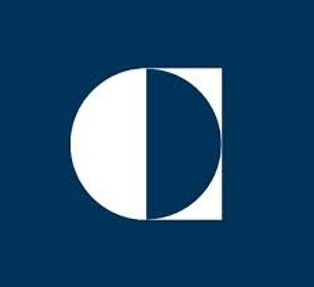top of page

Think Tanks
A think tank, or public policy institute, is an organization that performs research and advocacy concerning topics such as social policy, political strategy, economics, military, technology, and culture. Most think tanks are non-governmental organizations, but some are semi-autonomous agencies within a government, and some are associated with particular political parties, businesses, or the military.[1] Think tanks are often funded by individual donations, with many also accepting government grants.[2]
-
Carnegie Endowment for International Peace – United States
-
Bruegel – Belgium
-
French Institute of International Relations (IFRI) – France
-
Center for Strategic and International Studies -- United States
-
Fundação Getulio Vargas -- Brazil
-
Chatham House -- United Kingdom
-
International Institute for Strategic Studies (IISS) -- United Kingdom
-
Heritage Foundation -- United States
-
Peterson Institute for International Economics (PIIE) -- United States
-
Woodrow Wilson International Center for Scholars -- United States
-
Carnegie Endowment for International Peace: A global organization with a focus on international affairs and policy.
-
Center for Strategic and International Studies (CSIS): A US-based think tank focused on national security and foreign policy.
-
Brookings Institution: A non-partisan organization that conducts research on a wide range of policy issues.
-
Heritage Foundation: An American conservative think tank focused on public policy.
-
Peterson Institute for International Economics (PIIE): Specializes in international economics and trade policy.
-
RAND Corporation: A research organization that provides analysis and solutions to public policy challenges.
-
Council on Foreign Relations (CFR): A US-based think tank focusing on US foreign policy and international relations.
-
Atlantic Council: A global organization that works on international affairs and security issues.
-
Hudson Institute: A US-based think tank focused on policy solutions and strategic thinking.
-
Woodrow Wilson International Center for Scholars: A US-based think tank focused on public policy and international affairs.
Globally, think tanks exhibit a wide range of characteristics depending on their country of origin and specific focus, including political bias (liberal, conservative, or neutral), and funding sources (private or state-run).
1. By Political Bias
-
Conservative:
-
The Heritage Foundation (US)
-
Hoover Institution (US)
-
Fraser Institute (Canada)
-
Institute of Public Affairs (Australia)
-
-
Liberal/Progressive:
-
Center for American Progress (US)
-
Center on Budget and Policy Priorities (US)
-
Economic Policy Institute (US)
-
Demos (US)
-
-
Libertarian:
-
Cato Institute (US)
-
The Heartland Institute (US)
-
Adam Smith Institute (UK)
-
-
Non-Partisan/Centrist:
-
Pew Research Center (US)
-
Peterson Institute for International Economics (US)
-
RAND Corporation (US)
-
2. By Country
Many prominent think tanks are based in the US and include organizations like the Carnegie Endowment for International Peace, Center for Strategic and International Studies, Brookings Institution, and the Council on Foreign Relations. The UK is home to Chatham House, the International Institute for Strategic Studies, and the Adam Smith Institute. Other countries with notable think tanks include Canada (Centre for International Governance Innovation), Germany (Stiftung Wissenschaft und Politik), France (French Institute of International Relations), Belgium (Bruegel), and China (Carnegie-Tsinghua Center for Global Policy).

The Carnegie Endowment for International Peace is a non-profit organization dedicated to advancing cooperation between countries and promoting active international engagement. It provides independent analysis, conducts research, and advises policymakers on global issues like international cooperation, conflict, and governance. The Endowment also supports diplomacy and trains the next generation of scholar-practitioners.
Topics
artificial intelligence | banking union | capital markets | climate change | cohesion policy | competition policy |
corruption | Covid-19 | decarbonisation | digital currencies | digital economy | digital single market | education |
emerging economies | employment | energy | eu budget | eu governance | EU-China relations | EU-UK relations |
euro area | Euro crisis | european central bank | european commission | European Green Deal |
european monetary union | European neighbourhood policy | european parliament |
European semester and fiscal rules | European single market | financial crisis | financial literacy |
financial regulation | fintech | fiscal policy | future of work | geopolitics | global governance | growth |
health economics and policy |industrial policy | innovation | investment | media | migration | monetary policy |
multilateralism | populism | public debt | security |sustainability | sustainable finance | tax policy | technology |
trade policy | transatlantic relations | welfare policy
Provides research and analysis of modern armed conflicts and foreign affairs.
bottom of page





















